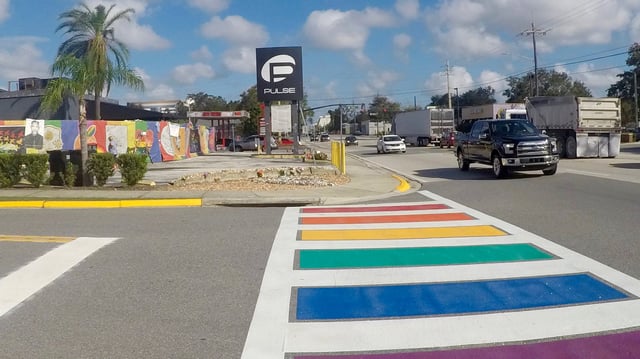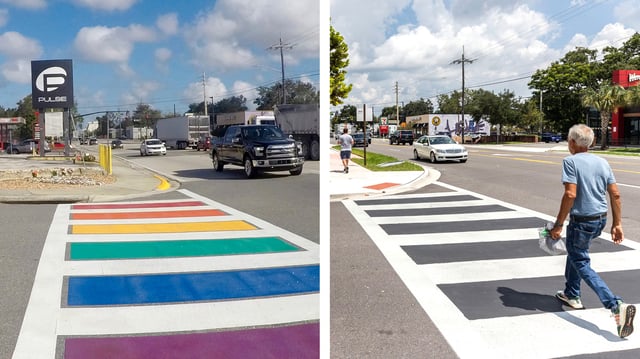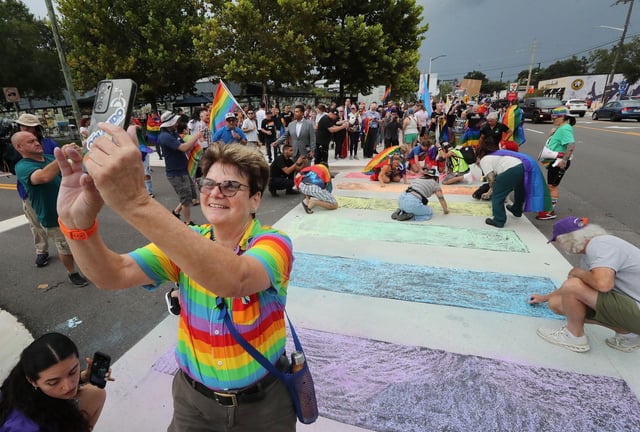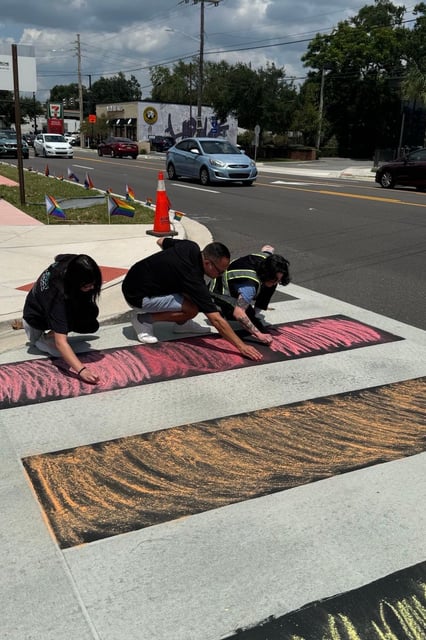Overview
- The Florida Department of Transportation acknowledged repainting the rainbow crosswalk at the Pulse nightclub site overnight and offered no advance notice to Orlando, where the state originally installed the memorial crossing in 2017.
- Orlando was told at least 18 additional decorative crossings and markings must be removed by Sept. 4, including recently added mural crosswalks and bike symbols the city says were approved to improve visibility.
- FDOT sent formal letters to other municipalities, including Fort Lauderdale, Key West, and Miami Beach, setting removal deadlines and warning that the state could withhold transportation funds or remove the markings and bill the cities.
- The enforcement follows a July 1 directive from U.S. Transportation Secretary Sean Duffy calling for uniform, distraction‑free road markings, as Florida updated its manual and statutes to prohibit pavement art tied to social or political messages.
- Local officials, survivors, and residents condemned the Pulse repainting and staged protests and chalk recolorings, while FDOT framed the actions as procedural and noted a separate permanent memorial is being pursued next to the site.



